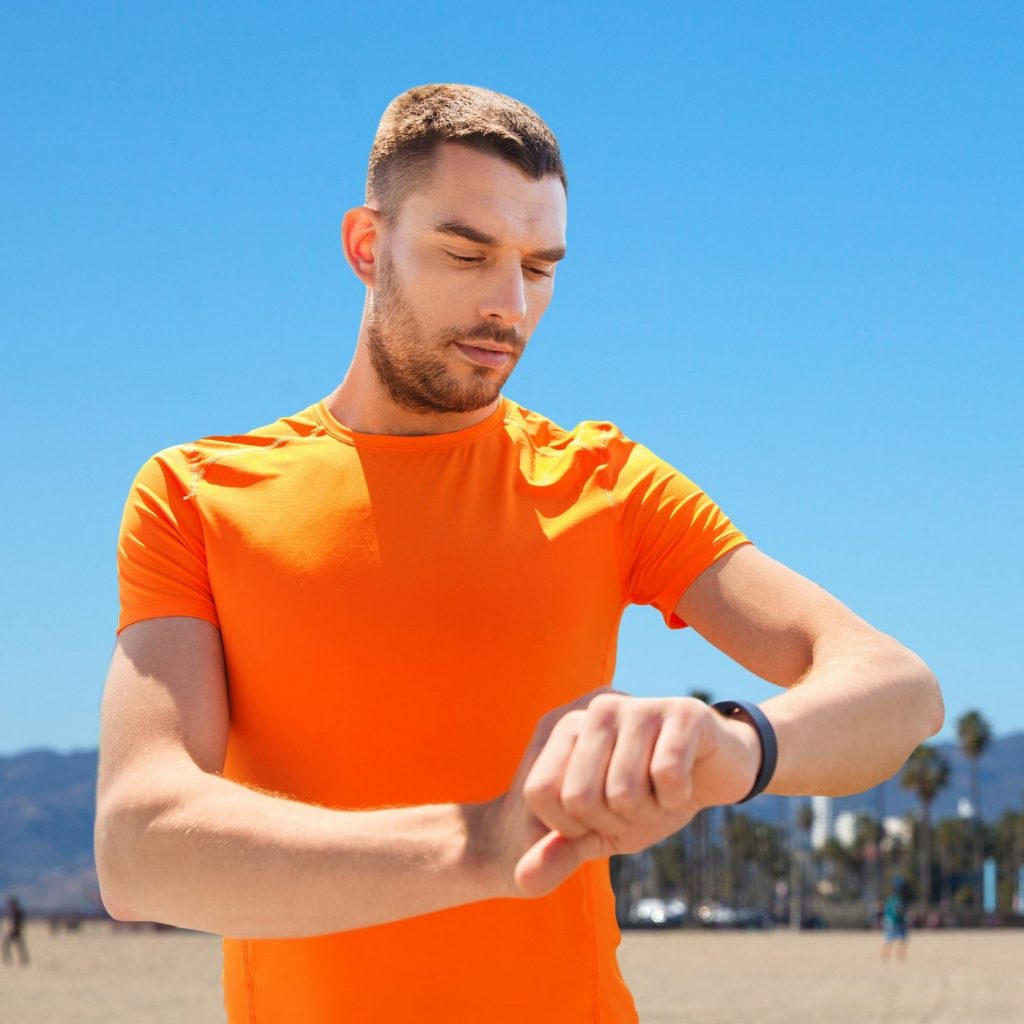Are you interested in getting into better shape and making your workouts more efficient? If so, you should consider buying a fitness tracker.
There are several different types of fitness trackers on the market, with varying features and price tags. In this article we’ll run you through some of the key differences and explain how exactly a fitness tracker can benefit you.
How do Fitness Trackers Work?


According to Harvard Health Publishing, fitness trackers may inspire a person to stick to a diet or exercise program. Fitness trackers aim to help users achieve their fitness goals by monitoring their performance and sometimes even suggesting ways to optimize their workouts.
Some of the cheaper and more basic models can just monitor the distance you’ve traveled and provide an estimate of how many calories you’ve burned, while the more sophisticated models have an array of other useful features, such as a heart rate monitor and GPS.
They are often compared to smartwatches as there is some overlap in features and functionality, and whether you’re better off using a smartwatch or a fitness tracker ultimately depends on your specific goals and how seriously you’re taking your fitness.
Are They Only Good For Weight Loss?
Fitness trackers are often used by people looking to lose weight, as they have several great features – such as calorie monitoring (both in terms of how many calories you’ve burned and how many you’ve consumed) – which are ideal for this.
However, these wearable electronic devices are by no means only useful if you’re trying to lose weight; they can be helpful for people with various other fitness objectives, such as muscle building or improving your endurance.
How Much Do They Cost?
Prices vary significantly, with the most basic models costing as little as $50, while more advanced fitness trackers will set you back a few hundred dollars.
It’s ultimately up to you to decide whether it’s worth spending extra to get one with additional features, but be sure to always consider which is best suited to your individual fitness needs and how its features will help you actually achieve your goals.
Do They Need to be Connected to a Smartphone?
Most fitness trackers don’t need to be connected to a smartphone, but those that don’t have built-in GPS will need to be linked to a smartphone to accurately utilize some of their features.
For some people, this is a big deal, while others don’t mind having to carry their smartphones around during their workouts. Be sure to consider this point before you start looking at models, as it’s a good way to narrow down the market.
Final Thoughts
Fitness trackers are undoubtedly a very useful tool when it comes to trying to get into better shape and pay closer attention to your diet.
They are especially useful for Baby Boomers who are looking to get fitter, as some of their features can really simplify the process for older users and provide additional motivation by allowing them to track their progress over time.
A Quick Summary
- A fitness tracker can be a great tool to help people achieve specific fitness goals and get into better shape.
- There are several different types of fitness trackers out there, with different features and varying levels of sophistication.
- Popular features include things like calorie tracking and heart rate monitoring.
- Some models have built-in GPS, while the more basic fitness trackers don’t (and therefore need to be connected to a smartphone to unlock all of their features.)
- Fitness trackers are great for people of all ages, but Baby Boomers, in particular, can find them very helpful.






